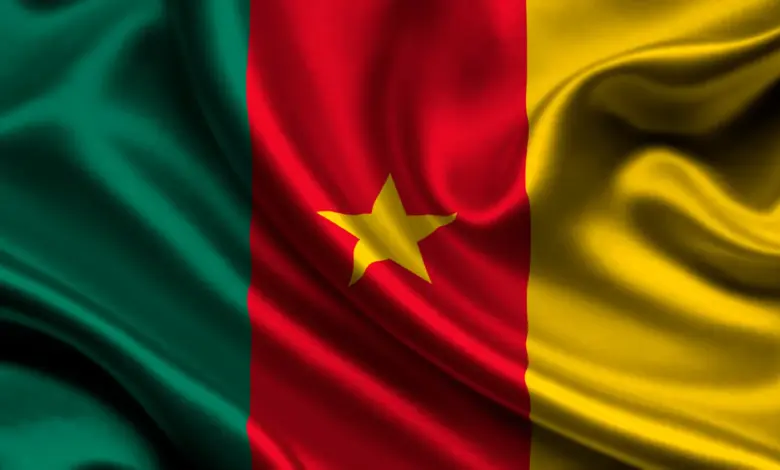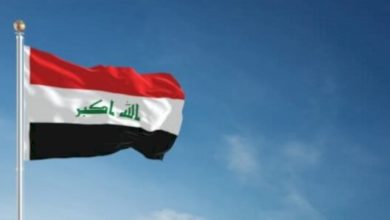Cameroon’s Political Future under Paul Biya’s Eighth Mandate

Prepared by the researche : Amr Rashad Ismail – Expert in African Affairs
DAC Democratic Arabic Center GmbH
The National Electoral Commission announced the victory of President Paul Biya, who secured 53.66% of the vote, ahead of opposition candidate Issa Tchiroma Bakary, who received 35.19%, according to official results. This outcome demonstrates the continued depth of Biya’s political dominance over the Cameroonian scene, yet at the same time reveals a relative fragility within the ruling system. The margin between Biya and his opponent is not as wide as in previous elections, signaling that the opposition has begun to gain at least limited momentum. While the regime promotes the result as a symbol of “stability and continuity,” it also reflects a less absolute public satisfaction and suggests that the tools of control are less effective than before. Biya’s success, supported by a campaign maintaining the traditional image of centralized power, represents not just an electoral triumph but a systemic victory—an entrenched network of alliances, authority centers, and a pervasive security apparatus that sustains his rule beyond the electoral moment.
Biya’s long tenure in power since 1982 places this re-election beyond a mere political win—it constitutes a renewal of an era rather than a transition to a new one. The eighth term implies that Cameroon will not experience a leadership shift, leaving many who hoped for “change” disillusioned. Yet this stagnation is not the result of social consensus but of an entrenched authoritarian structure that has removed term limits and rendered elections a near-formality. Moreover, Biya’s continued rule despite his advanced age and fragile health underscores a deeper reality: power in Cameroon rests not on one individual but on a durable system capable of persisting regardless of the figurehead. This makes any near-term structural transformation improbable and strengthens the perception that the regime is institutionalized rather than provisional—a self-sustaining order rather than a temporary arrangement.
From an analytical standpoint, this victory can be examined from two dimensions: electoral legitimacy and its implications for development and stability. The credibility of the process was shaped by several factors—restrictions on public gatherings during the election, limited internet access, and opposition claims of fraud. Opposition figures reported harassment and significant obstacles. While some beneficiaries portray Biya’s continuity as a guarantee of stability—especially amid ongoing conflicts in anglophone regions and the country’s south—prolonged leadership often breeds institutional stagnation, weakens accountability, and erodes the capacity for innovation and genuine progress. The link between legitimacy and development here is telling: the question is not merely who won, but how the victory was achieved and what it signifies for political agency and governance in Cameroon.
From a regional geopolitical perspective, Biya’s victory serves as a mechanism for the regime to renew both domestic and international alliances. He has built strong ties with foreign powers and cultivated a centralized internal structure—spanning the military, security apparatus, and civil administration—that enables the reproduction of his authority. His continued leadership signals policy continuity, especially in areas criticized by observers: the anglophone conflict, extremist violence in the north, and underdevelopment in peripheral regions. Thus, the election represents not merely the persistence of a leader but the perpetuation of a governing pattern. It sends a clear message to the opposition and the broader populace that political change remains structurally constrained. Yet, this same dynamic could ignite latent anger—particularly among the youth—potentially escalating internal and regional tensions in the years ahead.
Looking forward, this victory marks a critical juncture: not an end, but a beginning of the post-election phase. The regime faces two key tests: first, its ability to renew itself by integrating new social and political actors beyond the traditional elite; second, the capacity of civil society and the opposition to resist the long-standing consolidation of power. Should the status quo persist, structural contradictions—economic, regional, and generational—will likely intensify. The missed opportunity for leadership change, therefore, may not be an endpoint but rather the start of a more turbulent phase if adaptation or reform fails to occur. The regime presently holds the upper hand, but the contours of Cameroon’s political future remain far from settled.
International Reactions
France:
France indirectly welcomed the re-election of President Paul Biya for an eighth term, viewing the continuation of stability in Cameroon as serving the mutual interests of both nations. The historical ties between Paris and Yaoundé are rooted in a deep colonial legacy and extensive economic cooperation, particularly in the fields of energy and defense. Despite persistent human rights criticisms directed at the Cameroonian regime, France opted for a cautious diplomatic tone that avoids confrontation. This implicit endorsement reflects the pragmatism of French policy in Africa, which tends to favor stable regimes—even at the expense of democratic reform—in order to prevent political vacuums that could threaten France’s traditional influence in the region.
European Union:
The European Union’s stance appeared cautious and noncommittal regarding Paul Biya’s re-election, as no explicit statement of endorsement or rejection was issued. This ambiguity reflects Brussels’ attempt to balance its desire for stability in Central Africa with its commitment to democracy and human rights. The EU had previously urged transparent and inclusive elections, but in this instance, it limited itself to general calls for “national unity.” Such restraint illustrates the Union’s reluctance to engage in direct diplomatic confrontation with Biya’s government, aware that overt pressure could further diminish its already limited leverage in Cameroon’s political landscape.
Russia:
Russia adopted a balanced position toward Paul Biya’s re-election, refraining from issuing any loud official statements while expressing, through diplomatic channels, respect for the will of the Cameroonian people. This approach is consistent with Moscow’s broader African strategy, which emphasizes non-interference in internal affairs in exchange for strengthened military and security cooperation. Russia perceives Biya as a reliable partner in expanding its presence on the continent, particularly amid Cameroon’s cooling relations with certain Western powers. This calibrated neutrality reinforces Russia’s image as a pragmatic ally—one that supports political stability without imposing ideological or democratic conditions.
African Union:
The African Union welcomed Paul Biya’s re-election, urging all political actors in Cameroon to respect the results and work toward national unity. The Union’s stance reflects its long-standing preference for political stability over electoral or human rights considerations. Despite controversy surrounding the transparency of the vote, the AU described the process as “relatively calm” with acceptable participation levels. This response underscores the organization’s belief that political change in Africa should occur gradually and through negotiation, rather than external pressure. Nevertheless, the AU’s position raises ongoing questions about its commitment to promoting democracy versus preserving equilibrium among incumbent regimes across the continent.
Challenges facing the president
The first challenge President Paul Biya will face in his new term lies in his eroding domestic legitimacy. After more than four decades in power, the government’s rhetoric of “stability” no longer convinces a younger generation that feels politically and economically suffocated. Low voter turnout and widespread allegations of fraud have fueled a perception that the regime survives through time management rather than renewed trust. This growing gap between the ruler and the ruled threatens the regime’s cohesion, especially in major cities plagued by unemployment and inequality. Preserving legitimacy will require more than security measures; it demands a redefinition of the state–society relationship, a difficult task within the closed political structure the regime has relied on for decades.
The economic situation will weigh heavily on Biya’s eighth term. Cameroon’s economy depends on limited resources such as oil and agriculture, suffers from poor infrastructure, and continues to repel foreign investment due to corruption and instability. Inflationary pressures and currency depreciation are worsening living conditions for the middle and lower classes. Biya faces a hard choice: to pursue genuine reforms involving anti-corruption measures and market liberalization, or to maintain the status quo that protects old privileges. Continuing the same administrative pattern risks deepening the economic trust deficit, particularly among a new generation of entrepreneurs and intellectuals demanding genuine participation in shaping the nation’s economic future.
The Anglophone crisis remains the most pressing political and security challenge. The conflict, ongoing since 2016 between the government and English-speaking regions, has resisted sustainable resolution despite repeated promises of dialogue. Continued fighting and humanitarian deterioration undermine the image of central authority and threaten national unity. Any attempt to impose a purely military solution will fail because the roots of the crisis lie in identity, citizenship, and justice. Biya therefore needs a new approach grounded in genuine decentralization and credible political guarantees for marginalized regions. Ignoring or postponing this issue will entrench instability, especially as local anger deepens and indirect foreign involvement grows more pronounced.
Regional transformations present another challenge for Biya in an increasingly volatile African context. The wave of coups across the Sahel, the erosion of trust in traditional regimes, and the surge of nationalist and anti-foreign sentiment have made long-serving leaders more vulnerable than ever. Cameroon now stands between the demands of security and those of reform. Failure to adapt to Africa’s new political mood—favoring accountability and economic sovereignty—could isolate Biya even from former allies. Moreover, collaboration with foreign powers in counterterrorism must be carefully balanced with state sovereignty, as excessive dependence on external support generates domestic resentment and weakens the country’s autonomy in decision-making.
The final challenge concerns the management of political succession itself. At over ninety years old, Biya faces the inevitable question of transition: not only how he governs, but who will govern after him. The absence of a clear succession plan or power-sharing mechanism within the ruling elite leaves the future open to instability if a sudden vacuum occurs. Ensuring state continuity will require restructuring the political landscape and allowing genuine pluralism within the ruling party. If Biya fails to build a self-sustaining system beyond his personal authority, his legacy may be reduced to that of a regime that endured but left behind no resilient institutions—a legacy defined by longevity rather than lasting statecraft.
Conclusion: In conclusion, President Paul Biya’s eighth term embodies both continuity and uncertainty. His victory confirms the endurance of an entrenched political system rather than the renewal of national consensus. Cameroon now stands at a crossroads: stability has been preserved, yet dynamism has been sacrificed. The country’s challenges—economic fragility, social discontent, and regional fragmentation—require structural reform, not administrative maintenance. The legitimacy of the regime will depend less on electoral outcomes and more on its ability to deliver justice, inclusion, and economic opportunity. Without a deliberate shift toward openness and generational renewal, Biya’s prolonged rule may secure short-term control while deepening the long-term crisis of governance and representation.




